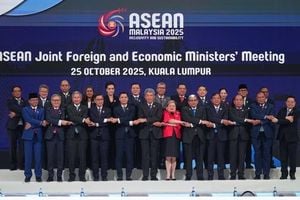The COVID-19 pandemic has triggered significant behavioral shifts among consumers, particularly concerning their food purchasing habits. Recent research indicates a compelling connection between health information-seeking behavior and the intent to purchase functional foods, with social influence serving as a key moderatory factor.
This study, conducted among 590 consumers across mainland China from June 10 to October 21, 2023, aimed to explore the dynamics of consumer behavior during the pandemic, shedding light on how health-related concerns shape purchasing decisions.
Researchers implemented online surveys to gather data, and the findings revealed a notable trend: consumers increasingly sought health information, which directly influenced their purchasing intentions for food deemed functional and healthy. The results demonstrate the importance of motivation for healthy eating as a driving factor behind this information-seeking behavior.
"Health information seeking has emerged as a significant determinant of purchasing intention during the COVID-19 pandemic," the study states, articulately reflecting the consumer sentiment during these unprecedented times.
The pandemic prompted heightened awareness of health risks, leading to alterations in lifestyle choices and shopping preferences. Based on survey data, as many as 30% of respondents were reported to spend between 300 to 500 yuan monthly on health and functional food products, highlighting the pressing demand for items perceived to bolster immunity or overall well-being.
Interestingly, the research also identified how social influence impacts consumer behavior. The study asserts, "The moderative role of social influence highlights the importance of community perceptions in consumer decisions about food," underscoring cultural dimensions, especially within collectivist societies like China, where social norms significantly guide personal choices.
To establish the framework for this investigation, researchers incorporated The Hierarchy of Effects Model (HOE) and Cultivation Theory. The HOE model effectively outlines the stages through which consumers progress from awareness to actual purchase behavior, and Cultivation Theory examines how repeated exposure to media shapes perceptions of reality, thereby influencing consumer attitudes and behaviors.
Another key finding of this research emphasizes how perceived health risks propel individuals to seek pertinent health information. Previous studies indicated strong correlations between health perceptions and information-seeking, forming the basis for the hypothesis underlying this study.
Further analysis through SmartPLS version 3.2.9 confirmed the significant interactions between health information seeking, social influence, and healthy food product purchasing intention. The study highlights the importance of yielding insights relevant for marketers, health practitioners, and policymakers alike.
Overall, consumers navigate health-related decisions and behaviors amid the information overload prompted by COVID-19 through both media portrayal and social interactions, leading to increased intentions to purchase health-associated food products. The blend of social influence and health information-seeking ensures marketing strategies must adapt to align with the underlying motivations and cultural values of consumers.
These findings are not just points of interest for academic insight; they serve practical functions for businesses aiming to engage consumers effectively during challenging circumstances. This study's outcomes are anticipated to shape both future health communication strategies and marketing efforts, bridging the gap between individual motivations and community practices.



